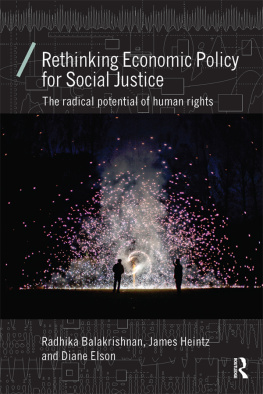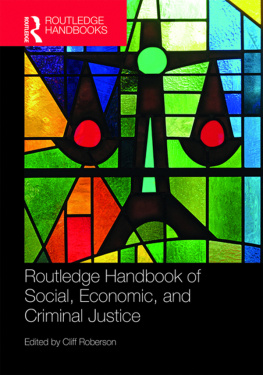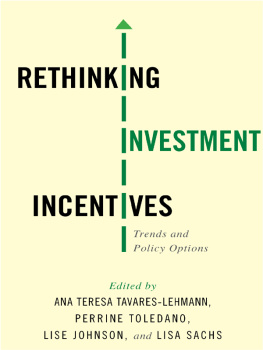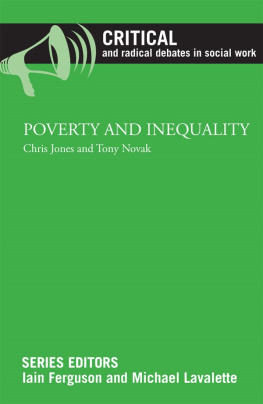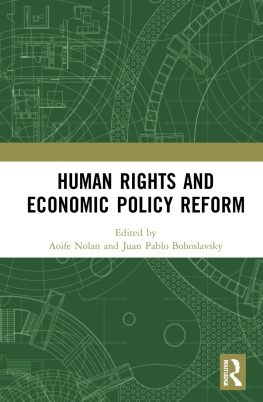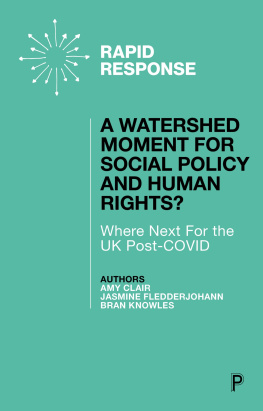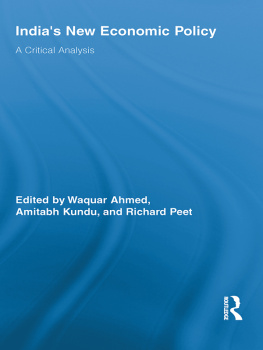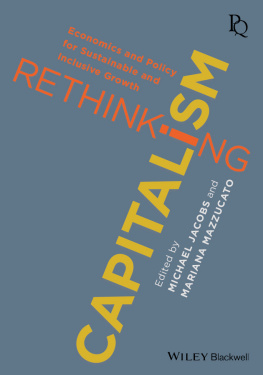Rethinking Economic Policy for Social Justice
The dominant approach to economic policy has so far failed to adequately address the pressing challenges the world faces today: extreme poverty, widespread joblessness and precarious employment, burgeoning inequality, and large-scale environmental threats. This message was brought home forcibly by the 2008 global economic crisis.
Rethinking Economic Policy for Social Justice shows how human rights have the potential to transform economic thinking and policy-making with far-reaching consequences for social justice. The authors make the case for a new normative and analytical framework, based on a broader range of objectives which have the potential to increase the substantive freedoms and choices people enjoy in the course of their lives and not upon narrow goals such as the growth of gross domestic product. The book covers a range of issues including inequality, fiscal and monetary policy, international development assistance, financial markets, globalization, and economic instability. This new approach allows for a complex interaction between individual rights, collective rights, and collective action, as well as encompassing a legal framework which offers formal mechanisms through which unjust policy can be protested.
This highly original and accessible book will be essential reading for human rights advocates, economists, policy-makers, and those working on questions of social justice.
Radhika Balakrishnan is the Faculty Director at the Center for Womens Global Leadership, and Professor of Womens and Gender Studies at Rutgers University, USA.
James Heintz is the Andrew Glyn Professor of Economics and Associate Director of the Political Economy Research Institute at the University of Massachusetts Amherst, USA.
Diane Elson is Emeritus Professor of Sociology at the University of Essex, Visiting Professor at the Centre for Research on Women in Scotlands Economy at Glasgow Caledonian University, and Research Associate of the Center for Womens Global Leadership at Rutgers University, USA.
Economics as Social Theory
Series edited by Tony Lawson
University of Cambridge
Social Theory is experiencing something of a revival within economics. Critical analyses of the particular nature of the subject matter of social studies and of the types of method, categories and modes of explanation that can legitimately be endorsed for the scientific study of social objects, are re-emerging. Economists are again addressing such issues as the relationship between agency and structure, between economy and the rest of society, and between the enquirer and the object of enquiry. There is a renewed interest in elaborating basic categories such as causation, competition, culture, discrimination, evolution, money, need, order, organization, power probability, process, rationality, technology, time, truth, uncertainty, value, etc.
The objective for this series is to facilitate this revival further. In contemporary economics the label theory has been appropriated by a group that confines itself to largely asocial, ahistorical, mathematical modelling. Economics as Social Theory thus reclaims the Theory label, offering a platform for alternative rigorous, but broader and more critical conceptions of theorizing.
Other titles in this series include:
1. Economics and Language
Edited by Willie Henderson
2. Rationality, Institutions and Economic Methodology
Edited by Uskali Mki, Bo Gustafsson, and Christian Knudsen
3. New Directions in Economic Methodology
Edited by Roger Backhouse
4. Who Pays for the Kids?
Nancy Folbre
5. Rules and Choice in Economics
Viktor Vanberg
6. Beyond Rhetoric and Realism in Economics
Thomas A. Boylan and Paschal F. OGorman
7. Feminism, Objectivity and Economics
Julie A. Nelson
8. Economic Evolution
Jack J. Vromen
9. Economics and Reality
Tony Lawson
10. The Market
John O Neill
11. Economics and Utopia
Geoff Hodgson
12. Critical Realism in Economics
Edited by Steve Fleetwood
13. The New Economic Criticism
Edited by Martha Woodmansee and Mark Osteen
14. What do Economists Know?
Edited by Robert F. Garnett, Jr.
15. Postmodernism, Economics and Knowledge
Edited by Stephen Cullenberg, Jack Amariglio and David F. Ruccio
16. The Values of Economics
An Aristotelian perspective
Irene van Staveren
17. How Economics Forgot History
The problem of historical specificity in social science
Geoffrey M. Hodgson
18. Intersubjectivity in Economics
Agents and structures
Edward Fullbrook
19. The World of Consumption, 2nd Edition
The material and cultural revisited
Ben Fine
20. Reorienting Economics
Tony Lawson
21. Toward a Feminist Philosophy of Economics
Edited by Drucilla K. Barker and Edith Kuiper
22. The Crisis in Economics
Edited by Edward Fullbrook
23. The Philosophy of Keynes Economics
Probability, uncertainty and convention
Edited by Jochen Runde and Sohei Mizuhara
24. Postcolonialism Meets Economics
Edited by Eiman O. Zein-Elabdin and S. Charusheela
25. The Evolution of Institutional Economics
Agency, structure and Darwinism in American institutionalism
Geoffrey M. Hodgson
26. Transforming Economics
Perspectives on the critical realist project
Edited by Paul Lewis
27. New Departures in Marxian Theory
Edited by Stephen A. Resnick and Richard D. Wolff
28. Markets, Deliberation and Environmental Value
John ONeill
29. Speaking of Economics
How to get in the conversation
Arjo Klamer
30. From Political Economy to Economics
Method, the social and the historical in the evolution of economic theory
Dimitris Milonakis and Ben Fine
31. From Economics Imperialism to Freakonomics
The shifting boundaries between economics and other social sciences
Dimitris Milonakis and Ben Fine
32. Development and Globalization
A Marxian class analysis
David Ruccio
33. Introducing Money
Mark Peacock
34. The Cambridge Revival of Political Economy
Nuno Ornelas Martins
35. Understanding Development Economics
Its challenge to development studies
Adam Fforde
36. Economic Methodology
An historical introduction
Harro Maas Translated by Liz Waters
37. Social Ontology and Modern Economics
Stephen Pratten
38. History of Financial Crises
Dreams and follies of expectations
Cihan Bilginsoy
39. Commerce and Community
Ecologies of social cooperation
Robert F. Garnett, Jr., Paul Lewis and Lenore T. Ealy
40. The Nature and State of Modern Economics
Tony Lawson
41. The Philosophy, Politics and Economics of Finance in the 21st Century
From hubris to disgrace
Edited by Patrick OSullivan, Nigel F.B. Allington and Mark Esposito
42. The Philosophy of Debt
Alexander X. Douglas
43. What is Neoclassical Economics?
Debating the origins, meaning and significance
Edited by Jamie Morgan
44. A Corporate Welfare
James Angresano

